Related Research Articles
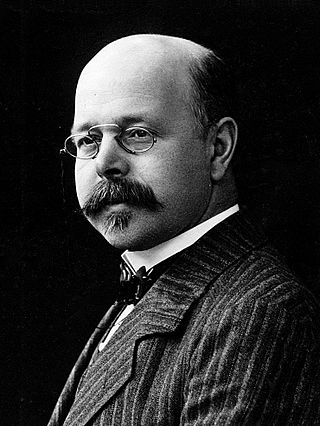
Walther Hermann Nernst was a German physicist and physical chemist known for his work in thermodynamics, physical chemistry, electrochemistry, and solid-state physics. His formulation of the Nernst heat theorem helped pave the way for the third law of thermodynamics, for which he won the 1920 Nobel Prize in Chemistry. He is also known for developing the Nernst equation in 1887.

The Free University of Berlin is a public research university in Berlin. It was founded in West Berlin in 1948 with American support during the early Cold War period as a Western continuation of the Friedrich Wilhelm University, or the University of Berlin, whose traditions and faculty members it retained. The Friedrich Wilhelm University, being in East Berlin, faced strong communist repression; the Free University's name referred to West Berlin's status as part of the Western Free World, contrasting with communist-controlled East Berlin.
The German Research Foundation is a German research funding organization, which functions as a self-governing institution for the promotion of science and research in the Federal Republic of Germany. In 2019, the DFG had a funding budget of €3.3 billion.

The Charité – Universitätsmedizin Berlin is Europe's largest university hospital, affiliated with Humboldt University and the Free University of Berlin.

Gordon Henry Guyatt is a Canadian physician who is Distinguished University Professor in the Departments of Health Research Methods, Evidence and Impact and Medicine at McMaster University in Hamilton, Ontario. He is known for his leadership in evidence-based medicine, a term that first appeared in a single-author paper he published in 1991. Subsequently, a 1992 JAMA article that Guyatt led proved instrumental in bringing the concept of evidence-based medicine to the world's attention.[2] In 2007, The BMJ launched an international election for the most important contributions to healthcare. Evidence-based medicine came 7th, ahead of the computer and medical imaging. [3][4] Guyatt's concerns with the role of the medical system, social justice, and medical reform remain central issues that he promoted in tandem with his medical work. On October 9, 2015, he was named to the Canadian Medical Hall of Fame.
The Francqui Foundation was founded in 1932 by Emile Francqui and Herbert Hoover in Belgium. The foundation is by Royal Decree an Institution of Public Utility. The Francqui Foundation wants to encourage disinterested fundamental research.

The Alexander von Humboldt Foundation is a foundation that promotes international academic cooperation between excellent scientists and scholars from Germany and from abroad. It was established by the government of the Federal Republic of Germany and is funded by the Federal Foreign Office, the Federal Ministry of Education and Research, the Federal Ministry for Economic Cooperation and Development as well as other national and international partners.
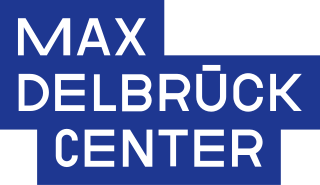
The Max Delbrück Center for Molecular Medicine in the Helmholtz Association in Berlin is one of the 18 institutions that make up the Helmholtz Association. It combines basic molecular biology research with clinical research and is dedicated to the research foci of systems medicine and cardiovascular diseases. The research center is named after the Berlin-born biophysicist and Nobel laureate Max Delbrück. The center is headed by Maike Sander.
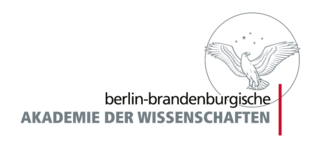
The Berlin-Brandenburg Academy of Sciences and Humanities, abbreviated BBAW, is the official academic society for the natural sciences and humanities for the German states of Berlin and Brandenburg. Housed in three locations in and around Berlin, Germany, the BBAW is the largest non-university humanities research institute in the region.

Michael Grätzel is a professor at the École Polytechnique Fédérale de Lausanne where he directs the Laboratory of Photonics and Interfaces. He pioneered research on energy and electron transfer reactions in mesoscopic-materials and their optoelectronic applications. He co-invented with Brian O'Regan the Grätzel cell in 1988.
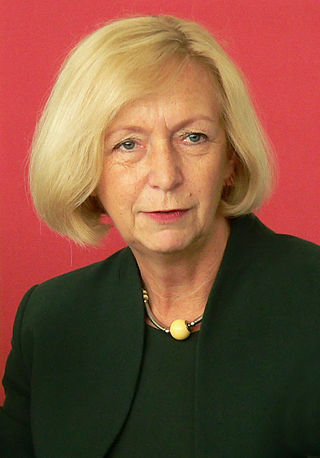
Johanna Wanka is a German politician of the Christian Democratic Union (CDU) who served as Federal Minister for Education and Research in the government of Chancellor Angela Merkel from 2013 until 2018. From 2000 to 2009, she served as Minister for Science, Research and Culture of the state of Brandenburg, then from 2010 to 2013 she served as Minister of Science and Culture of the state of Lower Saxony, in the Cabinet McAllister.
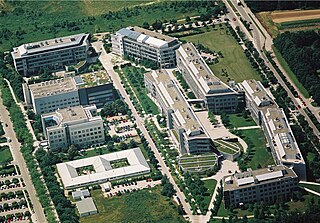
The Center for Integrated Protein Science Munich (CIPSM) is a cluster of excellence in sciences located in Munich. It is an association of research groups of the Ludwig Maximilian University of Munich, the Technical University of Munich, the Helmholtz Center Munich, and the Max Planck Institutes of biochemistry and neurobiology in Martinsried. Research at the center expands from isolated proteins up to proteins in living organisms applying methods of biophysics, biochemistry, medicine, and biology.

Stefan Hugo Ernst Kaufmann is a German immunologist and microbiologist and is one of the highly cited immunologists worldwide for the decade 1990 to 2000. He is amongst the 0.01% most cited scientists of c. 7 million scientists in 22 major scientific fields globally.

Surjo Raphael Soekadar is a German physician, neuroscientist and development aid worker.
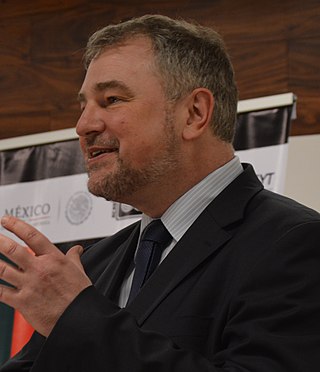
Stefan Rinke is a German historian and specialist in Latin American history. Since 2005 he has been professor at the Institute of Latin American Studies and at the Friedrich-Meinecke-Institut at Freie Universität Berlin.

Detlev Ganten is a specialist in pharmacology and molecular medicine and is one of the leading scientists in the field of hypertension. He founded the World Health Summit in 2009. He was Chairman of the Foundation Board of the Charité Foundation (2005–2015), editor of the Journal of Molecular Medicine, Chairman of the Board of Trustees of the Max Planck Institute of Colloids and Interfaces and Max Planck Institute of Molecular Plant Physiology as well as Chairman of the Board of Trustees of the Ethnological Museum Dahlem of the Prussian Cultural Heritage Foundation.

Nikolaus Rajewsky is a German system biologist at the Max-Delbrück-Center for Molecular Medicine (MDC) and at the Charité in Berlin. He founded and directs the “Berlin Institute for Medical Systems Biology”. He leads the Rajewsky lab, where he studies how RNA regulates gene expression. He also co-chairs LifeTime, a pan-European research initiative of more than 90 academic institutions and 70 companies, which aims to revolutionize healthcare by mapping, understanding, and targeting cells during disease progression. LifeTime integrates several technologies: single-cell multiomics, machine learning, and personalized disease models such as organoids. Rajewsky has received numerous awards and honors, including the most prestigious German award, the Gottfried Wilhelm Leibniz Prize, endowed with 2.5 million euros by the German Research Foundation (DFG).
The Alexander von Humboldt Professorship is an academic prize named after Alexander von Humboldt and awarded by the Alexander von Humboldt Foundation since 2008. The prize is intended to attract internationally leading scientists from abroad to Germany so that they can carry out top-level research there and strengthen Germany as a research location. The prize includes a permanent full professorship at the hosting university, plus 5 million euros for experimentally working scientists or 3.5 million euros for theoretically working scientists. This makes it the most highly endowed research prize in Germany, and possibly world-wide. A maximum of ten Alexander von Humboldt Professorships can be awarded every year to researchers of all disciplines. From 2020 to 2024, an additional six Humboldt Professorships in the field of artificial intelligence can be awarded each year.
Juri Rappsilber is a German chemist in the area of mass spectrometry and proteomics.
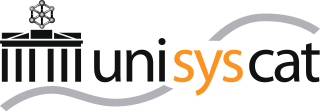
The Cluster of Excellence Unifying Systems in Catalysis (UniSysCat) is an interdisciplinary research network funded by the German Research Foundation (DFG) as a part of the federal and state initiative called Excellence Strategy of Germany, Exzellenzstrategie. The funding period runs from January 1, 2019 to December 31, 2025.
References
- ↑ "Einstein Foundation Berlin – Einstein Center for Neurosciences Berlin". www.ecn-berlin.de. Retrieved 2017-09-28.
- ↑ "New Jewish Unit Plans University". The New York Times. August 20, 1946. p. 10. ProQuest 107605957.
- ↑ "A unique international platform for leaders from the worlds of science, business, politics, the arts and society". Falling Walls. Retrieved Jul 22, 2024.
- ↑ Glaser, Linda B. (November 29, 2021). "arXiv founder Ginsparg wins Einstein Foundation Berlin Award". Cornell Chronicle .
- ↑ "Einstein Foundation Award Recipients and Finalists: Center for Open Science". Einstein Foundation Berlin. Retrieved May 10, 2023.
- ↑ IRELAND, NICOLE (Dec 1, 2022). "Canadian 'father of evidence-based medicine' wins global Einstein Foundation award". The Globe and Mail . The Canadian Press.
- ↑ "Canadian physician Gordon Guyatt and the Psychological Science Accelerator honored as this year's recipients of the €500,000 prize for enhancing quality in research" (Press release). Einstein Foundation Berlin. 1 December 2022. Retrieved 10 May 2023.
- ↑ Warnecke, Tilmann (Mar 7, 2014). "Einstein-Stiftung Berlin: Die Millionen-Spende kommt von der Ostsee". Der Tagesspiegel (in German).
- ↑ BSR-Chefin Otto und ehemalige Forschungsministerin Wanka neu im Beirat der Einstein Stiftung Einstein Foundation, press release of 6 October 2020.
- ↑ "Cecilia Clementi Einstein Foundation Berlin". www.einsteinfoundation.de. Retrieved 2020-10-15.
- ↑ "Multiscale Modeling of Biophysical Systems". www.mi.fu-berlin.de. 2016-09-20. Retrieved 2020-10-15.
- ↑ "Channing Der–Einstein Foundation Berlin". www.einsteinfoundation.de. Retrieved 2022-05-20.
- ↑ "Eduard Feireisl". Einstein Foundation Berlin.
- ↑ "David Gutmann–Einstein Foundation Berlin". www.einsteinfoundation.de. Archived from the original on 2020-06-20. Retrieved 2020-06-18.
- ↑ "Einstein Professors: Juri Rappsilber". Einstein Foundation Berlin. Retrieved 2021-12-06.
- ↑ Einstein Visiting Fellow Richard J. Samuels. YouTube. Einstein Foundation Berlin. Mar 14, 2016.
- ↑ "First professorship in clinical neurotechnology: Charité secures Einstein professorship and ERC starting grant". EurekAlert (Press release). CHARITÉ - UNIVERSITÄTSMEDIZIN BERLIN. 20 Nov 2018.
- ↑ Health, Berlin Institute of. "Viola Vogel". Einstein Foundation Berlin. Archived from the original on 13 October 2018. Retrieved 11 October 2018.
- ↑ "First funding period (2016-2021)". PATHOGRAPHICS (2016 - 2021). Free University of Berlin. 18 November 2019. Retrieved June 16, 2023.